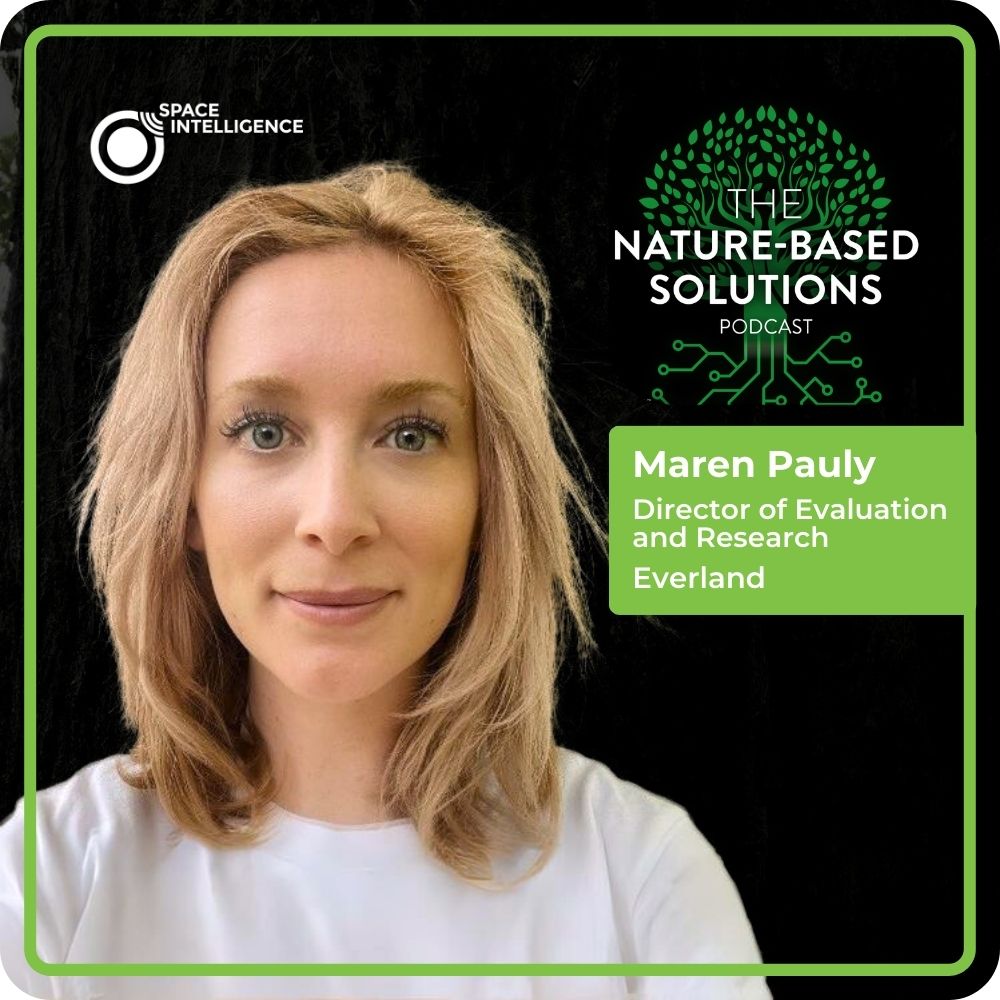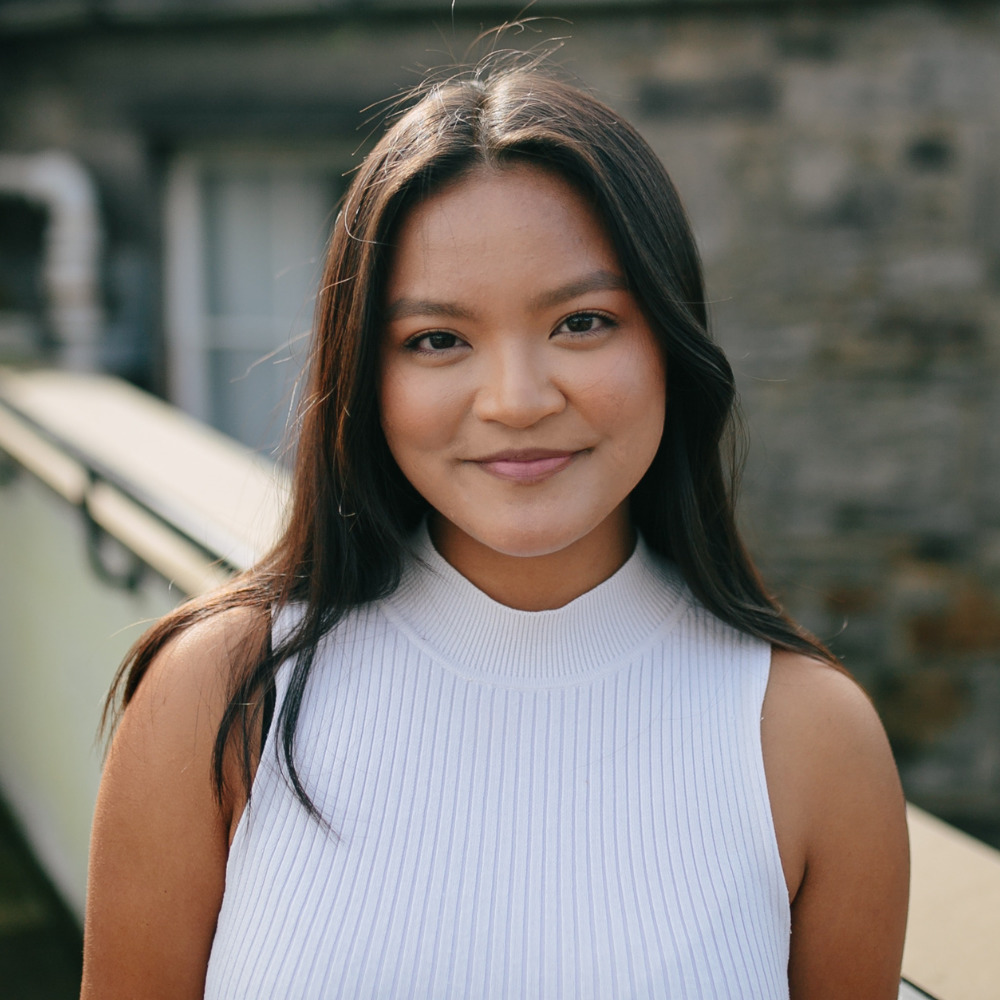
How REDD+ is protecting forests globally, with Dr Maren Pauly from Everland
In the final episode of Season 1 of The Nature-Based Solutions podcast, we speak with Dr Maren Pauly, Director of Evaluation and Research at Everland about the work of Everland, the state of REDD+, and what can help drive further investment in protecting forests.
Listen to the full conversation or read the summary below.
Click here to listen to the podcast on Spotify.
How would you describe Everland’s purpose?
Dr. Maren Pauly (MP): Everland represents the world’s largest portfolio of high impact REDD+ forest conservation projects, including those led by Wildlife Works, Wildlife Alliance and Wildlife Conservation Society.
We use the voluntary carbon markets to channel finance, from the corporations that we work with, to these conservation projects and to local communities in highly threatened forest landscapes.
Importantly, we undertake quite intensive desk-based and field-based due diligence before we represent any of these projects on the market.
What impact are the carbon markets having on tackling climate change?
MP: The carbon markets have had their ups and downs in the past few years, but they have really achieved some incredible things.
I’m involved in REDD+, so I can comment more specifically on that. These projects are not only vital, of course, to protecting diverse tropical forests, but really importantly, they for the first time are funnelling extensive amounts of finance directly to indigenous people and local communities who are really at the forefront of the climate crisis.
You’re not just buying a tonne of carbon when it comes to REDD+ projects, you’re buying an entire theory of change.
This unprecedented funding provides the economic incentives to really keep the forest standing.
What’s your view on the state of the market?
MP: We really do see the market starting to pick up steam, for a few reasons.
First of all, and very importantly, new methodologies are being developed by Verra and others. These will help REDD+ scale rapidly through jurisdictional programmes.
There’s been a lot of improvement in research and development to make sure that we have the technology available to really back these methodologies. This includes mapping advancements for baselining and monitoring. I think more generally, it’s become really clear that climate change will not be mitigated without saving forests.
So the demand for these credits really does remain high. I think a lot of market actors are just waiting for the new methodologies to come out. And then they will be more than happy to continue to funnel finances into these projects.
How is technology advancing the impact and quality of projects?
MP: Digital MRV (measurement, reporting, verification) is really vital to the carbon market, especially for REDD+ projects where the development of an accurate deforestation baseline and the assessment of the project against that baseline is what produces the value for the market.
So what you really need is high quality, high resolution, locally calibrated land cover data.
It’s really important to also know the uncertainties of this MRV data. No data’s perfect. So we need to know these uncertainties to make sure the credits are being issued for REDD+ projects within what we would call a zone of reasonable certainty.
What does the future of carbon markets hold?
MP: I’m very optimistic about the future of the carbon markets, particularly with the expansion of REDD+ through jurisdictional programs that are set to roll out in 2024.
And if these jurisdictional programs have the strong technological basis that we’ve been promised, then the market is really poised to grow rapidly with projects coming online quickly, underpinned by this level of certainty that buyers are after.
And I think the release of new standards, including the Equitable Earth Standard in 2024 will really rock the market.
We have a new standard that’s community centred, data intensive, and an alternative to Verra for REDD+ projects. Everland is one of the founding members of this standard. So that’s really what we’re pushing forward within the next year, but it will ultimately be a standard that is focused in the South that is completely indigenous and community led. So that’s very, very exciting.
We’re currently representing five REDD+ projects that are currently safeguarding 1.2 million hectares of forests. And they’ve actually already reduced greenhouse gas emissions by more than a hundred million tons of CO2 equivalent.
And we’re set to double these figures by the end of 2024 through this establishment and new projects by our partners, including Wildlife Forks, Wildlife Conservation Society and Wildlife Alliance. We envision the market and Everland to do incredible things in 2024 to protect forests.
Like this Content?
Sign up to our monthly newsletter, Field Notes, to keep up to speed on all things nature-based news.

